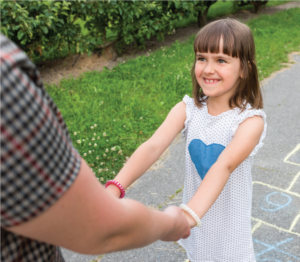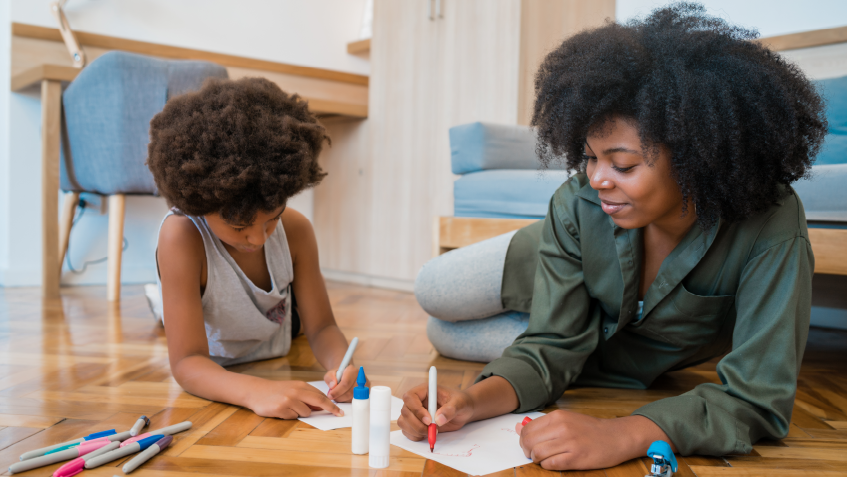Article by by Dee Jones, President of Light 2 World, Inc
“Mommy, I want that new bike. Daddy get me a new skateboard. I want to take Karate. Get me pizza for dinner. I want new clothes. Get me a bigger room. I need a cell phone,” says your 3-year-old. The list goes on without even a “thank you” for anything! As we raise our young boys and girls, it becomes more obvious that “Gratitude” is not a priority.
Children who deal with hyperactivity and other behavioral challenges struggle with such attributes as compassion, empathy, and love for others. I noticed even with a speech delay until the age of 2 years old, that such emotions would be difficult. Many of us struggle with such positive behaviors. Yet, there is hope!
Author Doreen Franklin states “that taking advantage of everyday teachable moments is a start.” Children watch everything we do; so, if they observe us using “grateful behaviors” some of this should rub off eventually. I am finding more and more moments with our little one as I hear him say “thank you” and more please”. This thrills my heart. We all are a work in progress! Stories and visual animation are useful tool as well.
Below are a few ideas from my own experience and writer Franklin:
- Prayer for a new day, meals, family.
- Stories of seasons for Thanksgiving, Christmas, Easter, Birthdays that surround thanks and gratitude.
- Share appreciation for others – compliments.
- Compliment your child’s efforts of gratitude no matter how small.
- Caring for a pet part-time or full time.
- Donations of money, gifts, outgrown clothes, and time (volunteering) to those in need – giving helps foster gratitude in what we have.
- Gratitude walks – appreciating the world around us in your neighborhood.
- Creating a gratitude jar – writing down anything that happens or comes to mind.
- Showing gratitude through gift-giving to others such as small gifts of appreciation to the, teachers, school bus drivers, cashier, waitress, or sales assistant.
- Writing thank you cards – not just for presents – also for actions.
- Saying please and thank you – appreciating everyone through good manners.
- Gain support from family, friends, church groups or a support group.
- Provide time for games, playdates with family, and other children to promote sharing, taking turns, and social engagement.
- Be patient and pray together about gratitude.
 I can say that we are seeing the fruit of our labor as our young one shows small signs of progress such as involving us in his play. Instead of ignoring us, he asks if we would like to pick a toy to play with. This is huge because some children with behavioral challenges do not engage in play with others (parallel play). Parallel play is “form of play in which a child plays independently in the presence of other children.
I can say that we are seeing the fruit of our labor as our young one shows small signs of progress such as involving us in his play. Instead of ignoring us, he asks if we would like to pick a toy to play with. This is huge because some children with behavioral challenges do not engage in play with others (parallel play). Parallel play is “form of play in which a child plays independently in the presence of other children.
For us, this is changing to engagement with others in small steps. Sports and church groups can foster this but, be patient. We celebrate even the smallest attempts. Do not give up. Keep the faith. Continue to model what you want to see in your young one. Do not push too hard. Involve others in your journey and celebrate small wins! Be thankful and full of gratitude.
Light 2 World Inc.
Dee Jones, President
1013 Beards Hill Road Suite M #237
Aberdeen, MD 21001
410-459-5060
www.DeeJones.org
www.DeeJones1.wordpress.com
www.Facebook.com/DeeJonesMinistry
Resources:
www.dictionary.com/browse/parallel-play
www.parentingspecialneeds.org/article/teaching-gratitude-how-to-teach-your-child-thankfulness/
Oasis Church
2200 Glasgow Avenue, Newark, DE
www.OasisDE.org
Read more articles from VOM Magazine here: https://www.veteransoutreachministries.org/vom-magazine/






